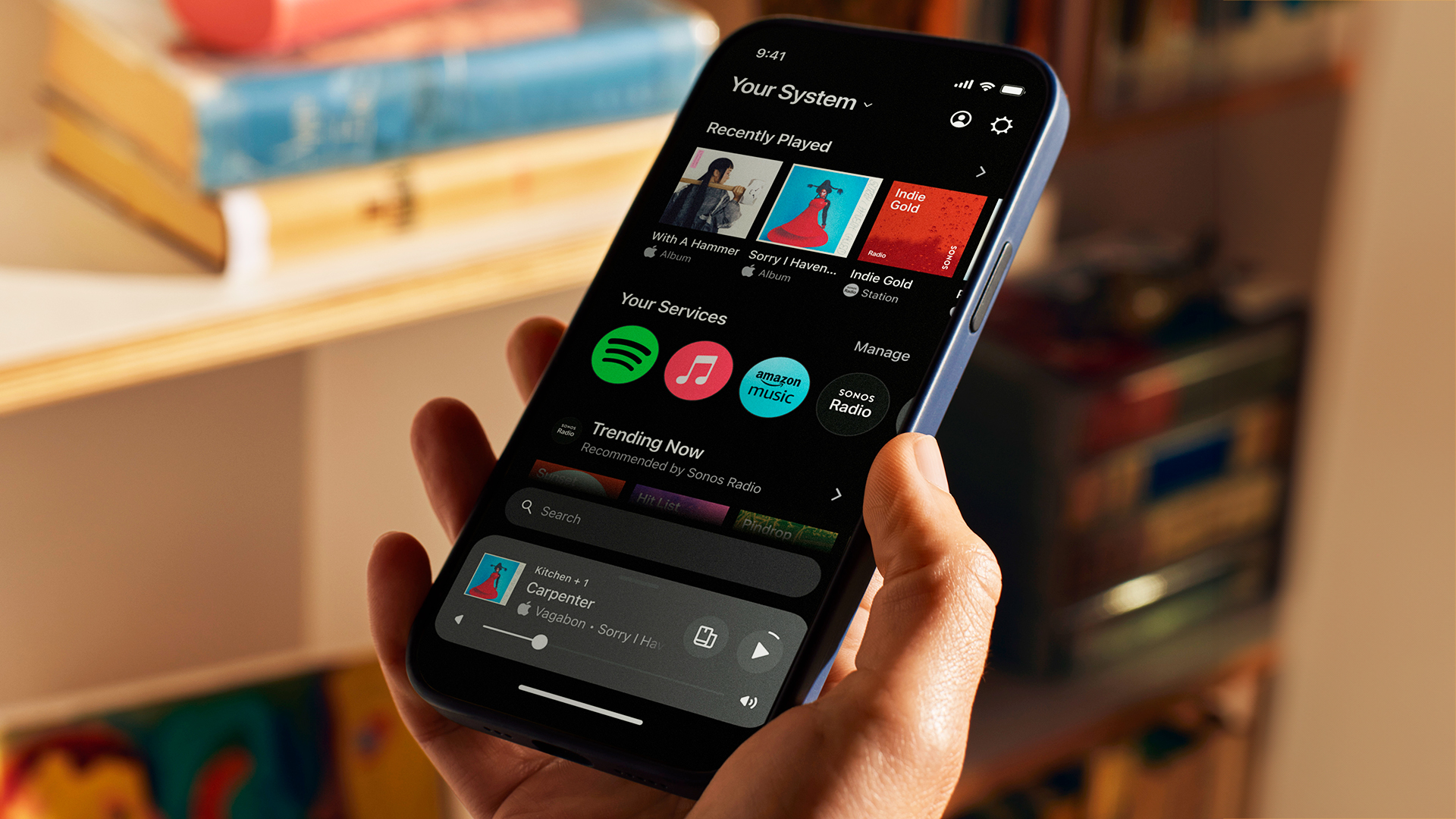Sonos defends its controversial app redesign, but many fans are still fuming
Sonos's CEO says he has no regrets about the app update

The controversy over Sonos's app redesign, which infuriated many customers after Sonos quietly dropped some features – especially for Android users, doesn't look like it's going away. CEO Patrick Spence doesn't regret the overhaul and has suggested that the customer will simply "adapt to that change".
Spence was speaking to The Verge, who asked him about the controversy. The only thing he'd have done differently, he said, "is probably communicate the roadmap a little more clearly". For Spence, the app is vastly improved and the people who don't like it are a vocal minority who don't like change: "it’s actually much easier to navigate, more responsive, and just a better overall experience, and that is the thing for the 99 percent of customers that you’re never going to hear from as you go through it."
Of course, you'd expect a CEO to defend his product. But as some commenters have noted, the app wasn't a new product that people could choose whether or not to buy (it is available now as a free app update – which you should think carefully about downloading); the app update fundamentally changed people's existing systems, removing features from – and according to some, degrading the performance of – multiple products they'd already paid for and invested in.
As reader Int19 puts it, in the article's comments: "There’s not many other products that a consumer can purchase where the manufacturer can literally change them while you sleep, without notification or consent." And DuckyDucky added: "I could care less about the UX changes, but the poor rollout is undeniable: lack of accessibility testing, loss of features, zero communication, are all signs of misses you don’t expect from a professional software organization."
What Sonos customers are saying
Spence's comments haven't gone down brilliantly with users of the r/sonos subreddit, where there's been plenty of discussion over the app redesign and its aftermath. There's no angry mob there, though: it's more deep disappointment in the way Sonos has responded to what power users believe is perfectly valid criticism. As Spence himself said, Sonos has some very passionate customers; those customers have often invested a lot of time, money and energy in their systems and feel that Sonos has not only let them down, but added insult to injury.
Thraktor1 writes that, as someone who led a redesign of "a major consumer app with over 20m users", some unhappiness is inevitable after any significant change but "You only remove features that the vast majority of people don't use or love", and "The new app has to do its basic, most fundamental jobs at least as well as the prior version... you cannot cripple your ecosystem with a redesign and explain it away by 'people will adjust'".
For some Sonos customers the concern isn't so much the app update as the way the company has approached it and defended it. As Joeshabbadoo72 writes: "What increasingly gets under my skin about Sonos is the corporate hubris. It's the attitude that I really find unforgivable... the hardest thing for me to support with Sonos is a toxic culture that oozes out from the top." Fixing missing features in an app is relatively straightforward, but rebuilding those customers' trust may be a lot harder.
Get daily insight, inspiration and deals in your inbox
Sign up for breaking news, reviews, opinion, top tech deals, and more.
At a time when the company has just launched its Sonos Ace headphones and the Sonos Roam 2, its app redesign dominating headlines is likely the last thing the multi-room audio pioneer (and maker of some of the best wireless speakers we've ever tested) needs.
You may also like
- See our roundup of the best Sonos speakers on the market
- Read our complete Sonos home theater guide: the Sonos surround setups actually worth buying
- See all the TechRadar Sonos reviews
Writer, broadcaster, musician and kitchen gadget obsessive Carrie Marshall has been writing about tech since 1998, contributing sage advice and odd opinions to all kinds of magazines and websites as well as writing more than a dozen books. Her memoir, Carrie Kills A Man, is on sale now and her next book, about pop music, is out in 2025. She is the singer in Glaswegian rock band Unquiet Mind.
